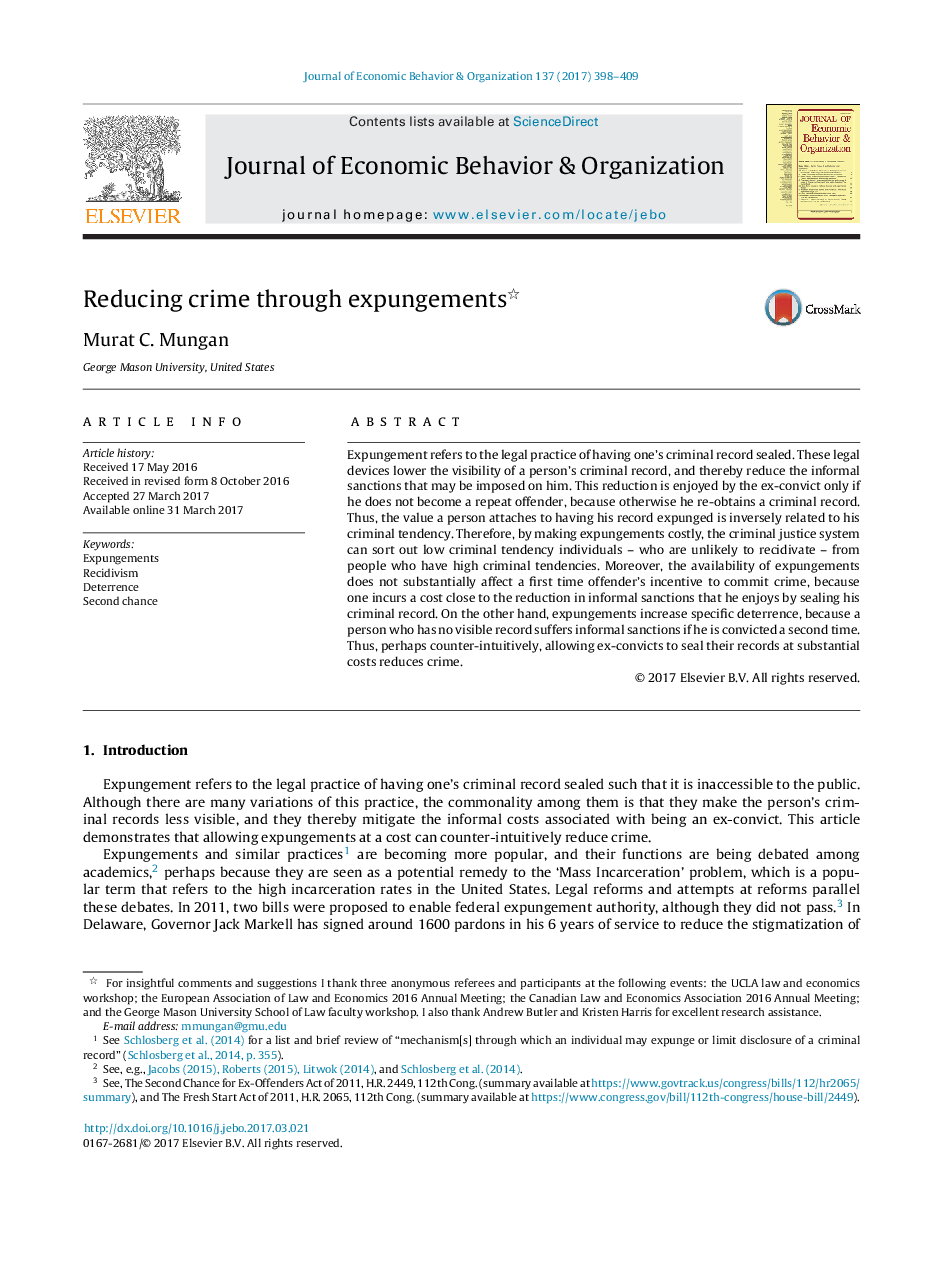| Article ID | Journal | Published Year | Pages | File Type |
|---|---|---|---|---|
| 5034573 | Journal of Economic Behavior & Organization | 2017 | 12 Pages |
â¢A law enforcement model is studied where first time offenders can expunge their records at a cost chosen by the government.â¢High criminal tendency offenders refrain from expunging their records and low criminal tendency offenders expunge their records.â¢Expungements increase specific deterrence by increasing the cost to re-offending to ex-convicts with expunged records.â¢There exists a range of expungement costs that reduce crime relative to a regime where there are no expungments.
Expungement refers to the legal practice of having one's criminal record sealed. These legal devices lower the visibility of a person's criminal record, and thereby reduce the informal sanctions that may be imposed on him. This reduction is enjoyed by the ex-convict only if he does not become a repeat offender, because otherwise he re-obtains a criminal record. Thus, the value a person attaches to having his record expunged is inversely related to his criminal tendency. Therefore, by making expungements costly, the criminal justice system can sort out low criminal tendency individuals - who are unlikely to recidivate - from people who have high criminal tendencies. Moreover, the availability of expungements does not substantially affect a first time offender's incentive to commit crime, because one incurs a cost close to the reduction in informal sanctions that he enjoys by sealing his criminal record. On the other hand, expungements increase specific deterrence, because a person who has no visible record suffers informal sanctions if he is convicted a second time. Thus, perhaps counter-intuitively, allowing ex-convicts to seal their records at substantial costs reduces crime.
